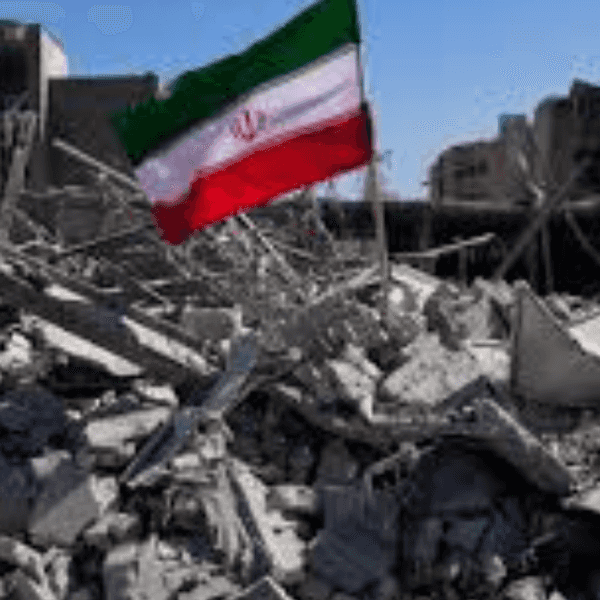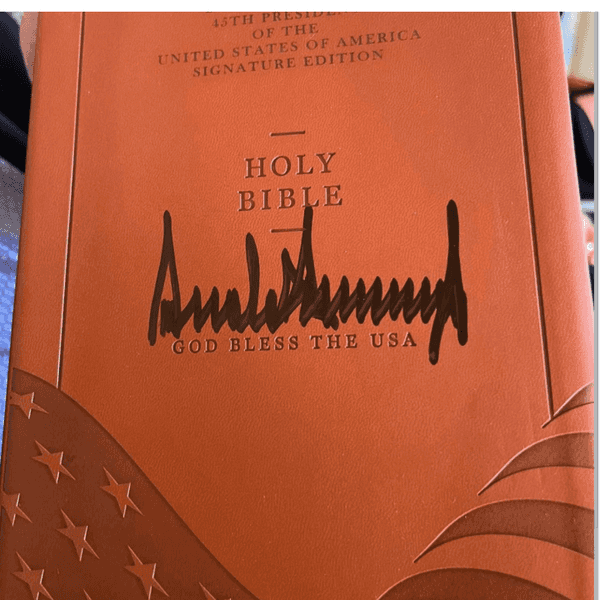
Reprinted with permission from TomDispatch
Remember the song "Over There"?
"Over there, over there
Send the word, send the word over there
That the Yanks are coming,
The Yanks are coming,
The drums rum-tumming everywhere..."
Maybe not, since it was popular so long ago, but it was meant to inspire American troops saying goodbye to their country on their way to a Europe embroiled in World War I. Written by George M. Cohan, the song paid homage to an American wartime urge to do good in the world, to take what was precious about this country and spread it to less fortunate, endangered peoples elsewhere. As Jon Meacham and country music star Tim McGraw reminded us, that song's message couldn't have been simpler: The good guys are coming.
A century later, that sentiment in Cohan's lyrics had merged with a related but ultimately contrary message: the supposed determination of America's leaders to keep at bay and away the dangers rife in so much of the rest of the world. As President George W. Bush repeatedly assured Americans after the 9/11 attacks, this country would keep the threat of terrorism "over there" -- and so away from our shores. "We will fight them over there so we do not have to face them in the United States of America," he typically told American legionnaires back in 2007.
More than a decade later, Republican Senator Lindsey Graham offered a reminder of the lingering persistence of such an "over there" mindset. Defending President Trump's decision to keep American forces in Iraq, Syria, and Afghanistan, he explained: "I want to fight the war in the enemy's backyard, not ours."
Trump's version of keeping danger "over there" manifested itself most notably in his attempts to keep the immigrant version of the dangerous Other over there. Beginning with his "big, fat, beautiful wall" and his Muslim ban, such efforts, including most recently his April 22nd proclamation of a 60-day suspension on immigration by those seeking green cards, have never ended.
One "immigrant" he could not keep out, however, was the coronavirus, which -- owing significantly to his acts (or lack of them) -- has played havoc with the over-there conceit. When it comes to Covid-19, undeterred by a military presence abroad or border walls, keeping the threat to this nation at bay is no longer a possibility. Instead, an array of dangers, deprivations, and fears that have long beset the rest of the world -- and from which the United States considered itself largely immune -- have now entered our supposedly separate, well-guarded, very exceptional American world. Like the giant "murder hornets" from Asia detected for the first time in the United States in April, perils once reserved for places abroad are now squarely in our own backyard.
Like it or not, Over There is now Right Here.
America as a War Zone
The stage for bringing "there" to the homeland was aptly set when President Trump declared the country at war with a disease. Suddenly, America's forever wars of the twenty-first century were no longer distant affairs. "War" was here and now, and this time we weren't the invaders, but the ones who had been invaded.
Appropriately enough, in these last months, New York City, the epicenter of the pandemic in this country, has been described by many in terms normally reserved for a war zone: the bodies of the dead laid out in rows as after battlefield encounters; tents like those seen at the outskirts of battle zones serving as makeshift hospitals in parks; sirens screaming day and night as emergency vehicles transport severely ill casualties of the virus to exhausted and overworked medical teams. And in the context of such a war at home, the military -- along with the various National Guard units -- has been on hand to help build temporary hospitals and distribute food and supplies.
Inside this new war zone, the basic circumstances of life have begun to resemble those long considered forever distant. For years now, we've been reading about casualty figures from places where Washington has pursued its "over there" war on terror. As Brown University's Costs of War Project has reported, since 9/11 more than 800,000 people have been killed in U.S. wars in Iraq, Afghanistan, and the Pakistani borderlands alone.
Now, by far the largest numbers of deaths are no longer over there but right here in the United States, thanks to the invisible virus among us. The world watches us as we lose Americans by the thousands on an almost daily basis. Health systems worldwide, and particularly in Africa, have long been a focus of the World Health Organization (WHO) and other medical groups. For decades, specialists have tried to ameliorate a lack of doctors, an absence of medical equipment, a need for more hospitals and greater access to healthcare on that continent. That was over there. No longer.
Life in the U.S. Becomes Precarious
Alongside images of war, the U.S. healthcare system is now experiencing the kind of shortages and incapacity that had previously been associated with those in impoverished countries. As a 2017 WHO report concluded, "Half the world lacks access to essential health services."
 This past month, as Covid-19 patients overwhelmed New York City hospitals, conditions there began to resemble those in such lands. The most basic things like access to emergency rooms or to urgent care for people with the virus (but also for those with other problems entirely) became less certain. As the numbers of Covid-19 patients soared, those experiencing other life-threatening symptoms began to be treated according to a new, far grimmer calculus. At the same time, individuals in need of emergency care for other reasons came to fear going to ERs and exposing themselves to the pandemic, sometimes dying at home instead.
This past month, as Covid-19 patients overwhelmed New York City hospitals, conditions there began to resemble those in such lands. The most basic things like access to emergency rooms or to urgent care for people with the virus (but also for those with other problems entirely) became less certain. As the numbers of Covid-19 patients soared, those experiencing other life-threatening symptoms began to be treated according to a new, far grimmer calculus. At the same time, individuals in need of emergency care for other reasons came to fear going to ERs and exposing themselves to the pandemic, sometimes dying at home instead.
In these months, for instance, the number of organ transplants fell precipitously. On March 31st, the Regional Emergency Medical Advisory Committee of New York City announced that adults in cardiac arrest were not to be transported to the hospital for additional attempts at revival if their hearts had not restarted after 20 minutes. Many cancer surgeries have been delayed until further notice.
And it's not just emergency care that's under siege. Doctors have become unavailable for non-urgent matters. Messages like this one from a medical group tell it all: "If you are young, healthy, and sick but otherwise stable at home, please limit your calls to your doctor's office so we can manage the high volume of calls incoming from high-risk patients." While tele-health appointments with your general practitioner have become a way of life, they are no substitute for a yearly physical, let alone in-person attention to medical disorders and diseases. Dentists are, of course, not performing regular services. How many of us will have to forego our yearly mammograms, our regular dental check-ups, our annual physicals during this pandemic?
If lack of access to adequate healthcare is a measure of a country under wartime-like stress, the United States is no longer an exception.
An American World of Deprivation
Other normal expectations about American life are also breaking down in ways once associated with foreign lands. As George Packer recently wrote in the Atlantic, the federal government now looks more like a failed state than a vibrant democracy. As he put it, the Trump administration's reaction to the coronavirus crisis was more "like Pakistan or Belarus -- like a country with shoddy infrastructure and a dysfunctional government whose leaders were too corrupt or stupid to head off mass suffering." In fact, the government's response to the crisis has failed in a striking set of ways, ranging from the unpreparedness of the Centers for Disease Control and Prevention (CDC) to the failure of diplomatic and domestic efforts to procure ventilators and protective masks or implement the distribution of stockpiles of medical equipment.
Meanwhile, the socio-economic level of the country has plummeted as middle-class Americans lose their jobs and begin the long fall into another existence. Since March, significant parts of the economy have been shut down and more than 33 million people laid off with 6 percent of the labor force filing for unemployment in the last two weeks of that month alone. Official U.S. unemployment recently hit 14.7 percent, a figure unseen since the Great Depression of the 1930s. Unemployment claims have surged catastrophically and are still climbing weekly.
For an increasing number of Americans, food insecurity has become a fact of life. Empty shelves for some products are increasingly common in grocery stores nationwide. While predictions of shortages and price increases vary from cautious denials to measured concern, certain aspects of the usual food chain do seem to be breaking down. As Shub Debgupta, an economist who focuses on supply-chain risks to food, has pointed out, supplies from other countries that the United States depends on are likely to dwindle in the coming months. So, too, will farm labor, often made up of guest workers from across the southern border.
In the food industry and elsewhere, from grocery stores to hospitals, safe working conditions have deteriorated as the pandemic spreads, heading in directions previously associated with exploitative, impoverished, and corrupt countries. The proximity of workers inside the country's meat-processing plants has, according to the CDC, already led to the infection of an estimated 5,000 workers (1,000 in a single plant).
Meanwhile, as the homelessness rate grows, many shelters have closed and those that remain open, social distancing being impossible and sanitary conditions bleak, are now potential hotbeds of infection, or as Emma Grey Ellis put it in Wired, "Homelessness is incompatible with health." And let's not forget the nightmare of nursing homes, some of which have become literal graveyards for the aged and infirm.
Prisons and detention centers have similarly become incubators for the spread of the disease, as our incarceration system suffers the kinds of deaths that might once only have been possible in countries like Chile, El Salvador, Peru, or elsewhere in Latin America (where notoriously overcrowded prisons have led to the rampant spread of Covid-19). Authorities in Arizona, for instance, now predict a 99 percent infection rate in its prison system and, despite the release of prisoners and immigration detainees across the country, unsanitary conditions and overcrowding still make prisons, as one expert remarked, "a ticking time bomb."
In these and other areas where deprivation is being enhanced as the coronavirus runs wild in America, the burden has fallen overwhelmingly on low-income groups, blacks and Hispanics in particular. In doing so, it has heightened an already all-American reality. Though billionaires continue to prosper, low-income groups with heightened health-risk factors are now suffering disproportionately from Covid-19.
Blacks, for instance, have so far made up 25 percent of the deaths in this country from the virus, nearly twice their numbers in the general population. In New York alone, as the disease engulfed the city, black and Latino residents are estimated to have perished at twice the rate of whites. In states like Michigan and Illinois, the disparities have been similarly pronounced, while unemployment rates among African Americans now overshadow that of whites to a degree that is breathtaking. William Rodgers, former chief economist at the Department of Labor, has estimated that, as early as March, the real unemployment rate for African Americans may already have climbed to 19 percent and has only increased since.
The world, in other words, is coming home.
Long-Simmering Realities
In many ways, the current crisis has, of course, just exposed conditions that should have been attended to long ago. Much that suddenly seems broken was already on the brink when the coronavirus appeared. If anything, the pandemic has simply accelerated already existing trends. As a December 2019 Century Foundation report on "racism, inequality, and health care for African Americans" concluded, "The American health care system is beset with inequalities that have a disproportionate impact on people of color and other marginalized groups." In fact, in 2019, the London-based Legatum Institute's Prosperity Index had already ranked the American healthcare system 59th in the world for its standard of services.
As bad as Donald Trump and his administration have been, the growing American coronavirus disaster can't simply be blamed on them. Covid-19 has brought home to the rest of us how over here over there really was. And now, the pathetic White House leadership in this crisis has raised another possibility: autocracy.
The Trump administration's failure to handle the crisis competently stems in part from the president's perception that whatever he says, in autocratic fashion, goes -- or, as he has often put it, "I can do whatever I want." From his early assertion that the virus was destined to go from 15 cases to one or disappear in the warmth of April to his fantasy numbers when it came to virus testing or obtaining crucial medical equipment to his recent advocacy of ingesting disinfectants as an antidote for Covid-19, the leader of the United States has come to resemble a run-of-the-mill autocrat spreading disinformation in his own interests. It's one thing to point to the power-grabbing of Russian President Vladimir Putin, the underhanded machinations of the dictator of North Korea, or the ruthlessness of the crown prince of Saudi Arabia. It's quite another to have a power-hungry leader as our own head of state. Once again, we are not immune. There is here.
With Covid-19, the very idea of American exceptionalism may have seen its last days. The virus has put the realities of wealth inequality, health insecurity, and poor work conditions under a high-powered microscope. Fading from sight are the days when this country's engagement with the world could be touted as a triumph of leadership when it came to health, economic sustenance, democratic governance, and stability. Now, we are inside the community of nations in a grim new way -- as fellow patients, grievers, and supplicants in search of food and shelter, in search, along with so much of humanity, of a more secure existence.
The world, in other words, has turned upside down. Perhaps it's sadly time to change those famed lyrics of George M. Cohan accordingly:
"Over here, over here
Send the word, send the word over here."
Whether from there or from here, the sooner the good guys arrive, the better.
Karen J. Greenberg, a TomDispatch regular, is the director of the Center on National Security at Fordham Law, as well as the editor-in-chief of the CNS Soufan Group Morning Brief. She is the author of Rogue Justice: The Making of the Security State, the editor of Reimagining the National Security State: Liberalism on the Brink, and host of the Vital Interests Podcast. Julia Tedesco and Sofia Cimballa contributed research to this article.
Follow TomDispatch on Twitter and join us on Facebook. Check out the newest Dispatch Books, John Feffer's new dystopian novel (the second in the Splinterlands series) Frostlands, Beverly Gologorsky's novel Every Body Has a Story, and Tom Engelhardt's A Nation Unmade by War, as well as Alfred McCoy's In the Shadows of the American Century: The Rise and Decline of U.S. Global Power and John Dower's The Violent American Century: War and Terror Since World War II.
Copyright 2020 Karen J. Greenberg








